-
 Bitcoin
Bitcoin $115100
1.27% -
 Ethereum
Ethereum $3675
2.71% -
 XRP
XRP $2.995
1.45% -
 Tether USDt
Tether USDt $1.000
0.02% -
 BNB
BNB $769.8
2.64% -
 Solana
Solana $168.0
3.25% -
 USDC
USDC $0.9999
-0.01% -
 TRON
TRON $0.3371
1.48% -
 Dogecoin
Dogecoin $0.2051
3.36% -
 Cardano
Cardano $0.7394
2.30% -
 Hyperliquid
Hyperliquid $38.15
0.42% -
 Stellar
Stellar $0.3966
-0.36% -
 Sui
Sui $3.486
2.93% -
 Chainlink
Chainlink $16.72
2.52% -
 Bitcoin Cash
Bitcoin Cash $568.0
4.36% -
 Hedera
Hedera $0.2440
2.59% -
 Ethena USDe
Ethena USDe $1.001
0.04% -
 Avalanche
Avalanche $22.16
2.06% -
 Litecoin
Litecoin $119.1
-0.73% -
 UNUS SED LEO
UNUS SED LEO $8.991
0.04% -
 Toncoin
Toncoin $3.232
-0.39% -
 Shiba Inu
Shiba Inu $0.00001233
2.82% -
 Uniswap
Uniswap $9.717
2.53% -
 Polkadot
Polkadot $3.664
1.85% -
 Dai
Dai $1.000
0.01% -
 Monero
Monero $281.2
-3.89% -
 Bitget Token
Bitget Token $4.350
1.55% -
 Cronos
Cronos $0.1428
5.07% -
 Pepe
Pepe $0.00001050
3.68% -
 Aave
Aave $262.3
3.54%
Understand the perpetual contracts on DEX (decentralized exchanges)
Perpetual contracts on decentralized exchanges (DEXs) provide traders with no expiration dates, lower fees, and instant liquidity, enabling them to speculate on future asset prices indefinitely.
Feb 23, 2025 at 01:18 pm
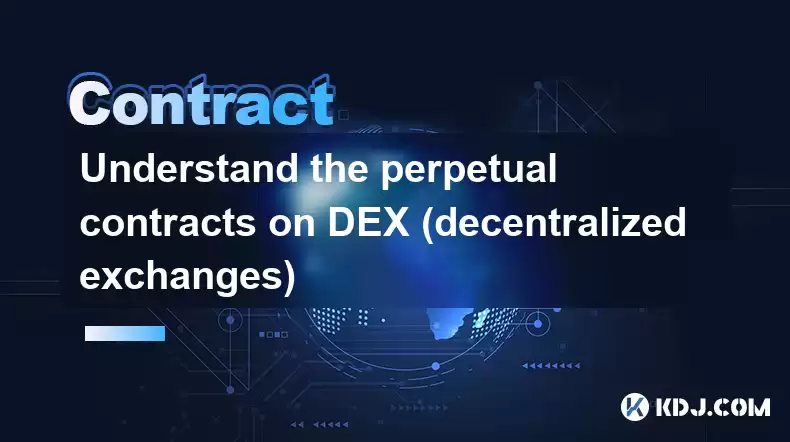
Understanding Perpetual Contracts on Decentralized Exchanges (DEXs)
Key Points:
- Introduction to perpetual contracts and their advantages over traditional futures contracts
- How perpetual contracts work on DEXs
- Top DEXs offering perpetual contracts
- Risks and considerations when trading perpetual contracts on DEXs
- FAQs about perpetual contracts on DEXs
Introduction to Perpetual Contracts
A perpetual contract is a type of derivative financial instrument that enables traders to speculate on the future price of an underlying asset without an expiration date. Unlike traditional futures contracts, which expire at a specific time, perpetual contracts remain open until they are closed by the trader. This feature allows traders to hold positions for extended periods and benefit from potential market fluctuations.
Perpetual contracts offer several advantages over traditional futures contracts:
- No expiration dates: Traders can hold perpetual contracts indefinitely, allowing them to profit from long-term market trends.
- Lower fees: DEXs often charge lower fees than centralized exchanges, making perpetual contracts more cost-effective.
- Increased liquidity: DEXs provide instant liquidity, reducing the risk of slippage and enabling traders to execute trades quickly and efficiently.
How Perpetual Contracts Work on DEXs
Perpetual contracts on DEXs are typically settled in cryptocurrency futures. A trader who enters into a perpetual contract takes a long position if they believe the price of the underlying asset will rise or a short position if they believe the price will fall. The contract is based on an index price and is marked to the market periodically. The trader's earnings or losses are settled automatically through the smart contracts that govern the trading process.
Top DEXs Offering Perpetual Contracts
Several DEXs currently offer perpetual contracts. Some of the most prominent platforms include:
- Uniswap V3: Leading DEX in terms of liquidity and trading volume, Uniswap offers perpetual contracts for various cryptocurrencies.
- dYdX: A dedicated DEX for derivative trading, dYdX specializes in perpetual contracts and offers low trading fees and high liquidity.
- GMX: Another DEX focused on derivatives, GMX features perpetual contracts with leverage and zero price slippage.
Risks and Considerations
While perpetual contracts offer potential rewards, they also involve significant risks.
- High leverage: Perpetual contracts often provide high leverage, which can magnify both profits and losses.
- Price volatility: The underlying assets for perpetual contracts are highly volatile, making price fluctuations unpredictable.
- Smart contract risk: DEXs utilize smart contracts for contract settlements, posing risks of vulnerabilities or bugs.
Traders should carefully consider their risk tolerance and conduct thorough research before entering into any perpetual contract trades on DEXs.
FAQs About Perpetual Contracts on DEXs
1. What are the key differences between perpetual contracts and traditional futures contracts?
- Perpetual contracts do not have expiration dates, while futures contracts expire at a specific time.
- Perpetual contracts are typically settled in cryptocurrencies, while futures contracts can be settled in various assets, including commodities, stocks, and indices.
- DEXs charge lower fees and offer higher liquidity for perpetual contracts compared to centralized exchanges.
2. How do I calculate the profit or loss on a perpetual contract trade?
- The profit or loss is based on the difference between the opening and closing price of the contract. A gain occurs when the closing price exceeds the opening price for long positions and vice versa for short positions.
3. Can I use leverage to trade perpetual contracts on DEXs?
- Yes, many DEXs offer leverage for perpetual contract trades, but it is essential to use leverage cautiously as it increases the potential for both gains and losses.
Disclaimer:info@kdj.com
The information provided is not trading advice. kdj.com does not assume any responsibility for any investments made based on the information provided in this article. Cryptocurrencies are highly volatile and it is highly recommended that you invest with caution after thorough research!
If you believe that the content used on this website infringes your copyright, please contact us immediately (info@kdj.com) and we will delete it promptly.
- BlockDAG, Litecoin, and Cardano: Charting the Course in Crypto's Dynamic Waters
- 2025-08-07 09:09:06
- Fireverse Token: Igniting a Musical Revolution in Web3
- 2025-08-07 08:27:45
- Ethereum, L2 Withdrawals, and Decentralization: A New Yorker's Take
- 2025-08-07 08:32:33
- Avalanche vs. Ruvi AI: Daily Sales Tell a Story of Crypto Disruption
- 2025-08-07 06:29:35
- DeSoc: The Crypto to Buy Now for a Decentralized Future (and Maybe 43x Gains!)
- 2025-08-07 06:50:16
- Arctic Pablo Coin: Riding the Meme Coin Wave with a Deflationary Twist
- 2025-08-07 07:18:13
Related knowledge
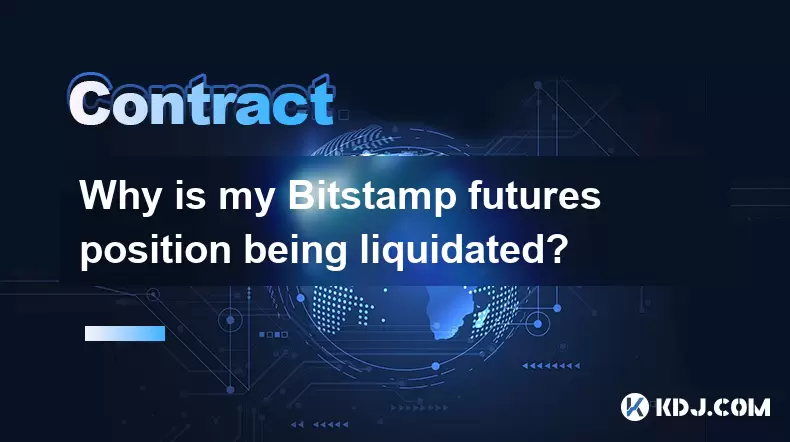
Why is my Bitstamp futures position being liquidated?
Jul 23,2025 at 11:08am
Understanding Futures Liquidation on BitstampFutures trading on Bitstamp involves borrowing funds to open leveraged positions, which amplifies both po...
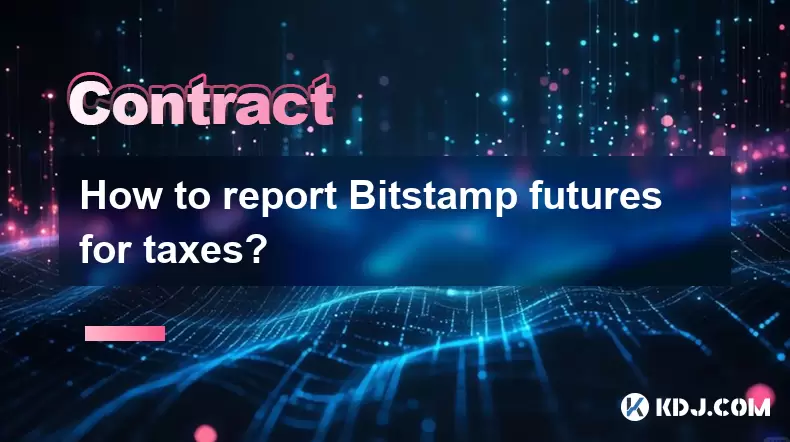
How to report Bitstamp futures for taxes?
Jul 30,2025 at 08:35am
Understanding Bitstamp Futures and Taxable EventsWhen trading Bitstamp futures, it’s essential to recognize that these financial instruments are treat...
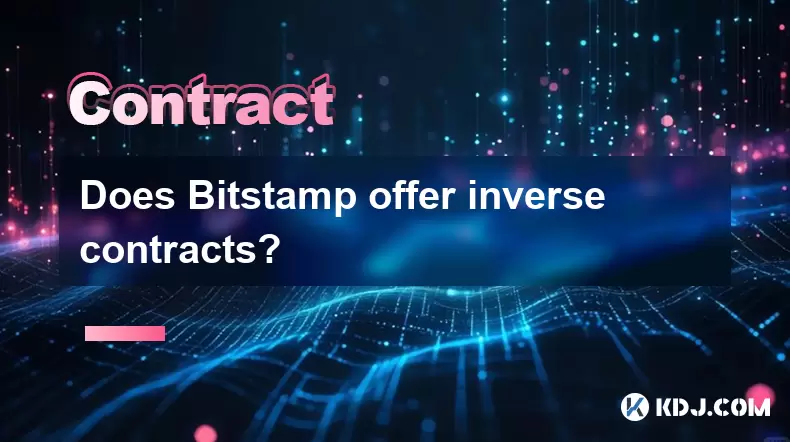
Does Bitstamp offer inverse contracts?
Jul 23,2025 at 01:28pm
Understanding Inverse Contracts in Cryptocurrency TradingIn the realm of cryptocurrency derivatives, inverse contracts are a specific type of futures ...
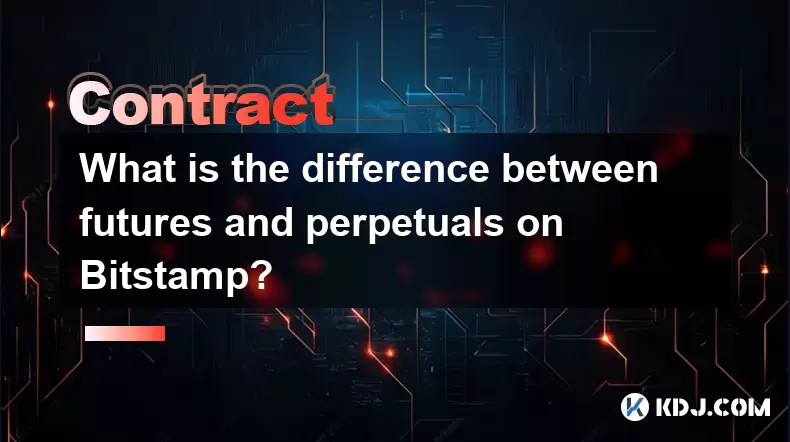
What is the difference between futures and perpetuals on Bitstamp?
Jul 27,2025 at 05:08am
Understanding Futures Contracts on BitstampFutures contracts on Bitstamp are financial derivatives that allow traders to speculate on the future price...
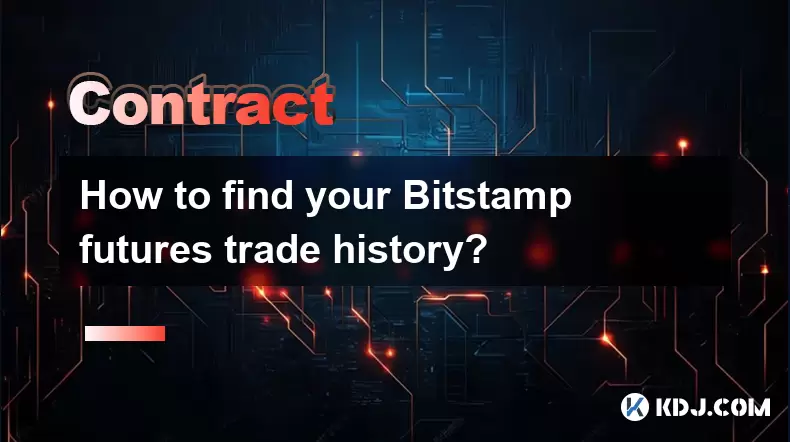
How to find your Bitstamp futures trade history?
Jul 23,2025 at 08:07am
Understanding Bitstamp and Futures Trading AvailabilityAs of the current state of Bitstamp’s service offerings, it is critical to clarify that Bitstam...
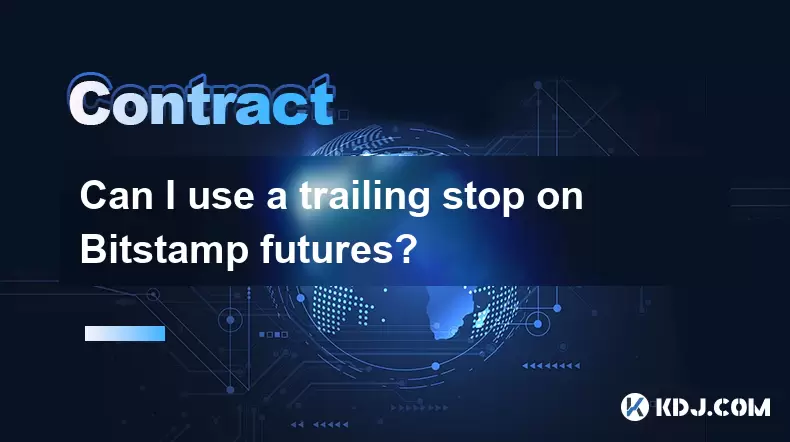
Can I use a trailing stop on Bitstamp futures?
Jul 23,2025 at 01:42pm
Understanding Trailing Stops in Cryptocurrency TradingA trailing stop is a dynamic type of stop-loss order that adjusts automatically as the price of ...

Why is my Bitstamp futures position being liquidated?
Jul 23,2025 at 11:08am
Understanding Futures Liquidation on BitstampFutures trading on Bitstamp involves borrowing funds to open leveraged positions, which amplifies both po...

How to report Bitstamp futures for taxes?
Jul 30,2025 at 08:35am
Understanding Bitstamp Futures and Taxable EventsWhen trading Bitstamp futures, it’s essential to recognize that these financial instruments are treat...

Does Bitstamp offer inverse contracts?
Jul 23,2025 at 01:28pm
Understanding Inverse Contracts in Cryptocurrency TradingIn the realm of cryptocurrency derivatives, inverse contracts are a specific type of futures ...

What is the difference between futures and perpetuals on Bitstamp?
Jul 27,2025 at 05:08am
Understanding Futures Contracts on BitstampFutures contracts on Bitstamp are financial derivatives that allow traders to speculate on the future price...

How to find your Bitstamp futures trade history?
Jul 23,2025 at 08:07am
Understanding Bitstamp and Futures Trading AvailabilityAs of the current state of Bitstamp’s service offerings, it is critical to clarify that Bitstam...

Can I use a trailing stop on Bitstamp futures?
Jul 23,2025 at 01:42pm
Understanding Trailing Stops in Cryptocurrency TradingA trailing stop is a dynamic type of stop-loss order that adjusts automatically as the price of ...
See all articles

























































































